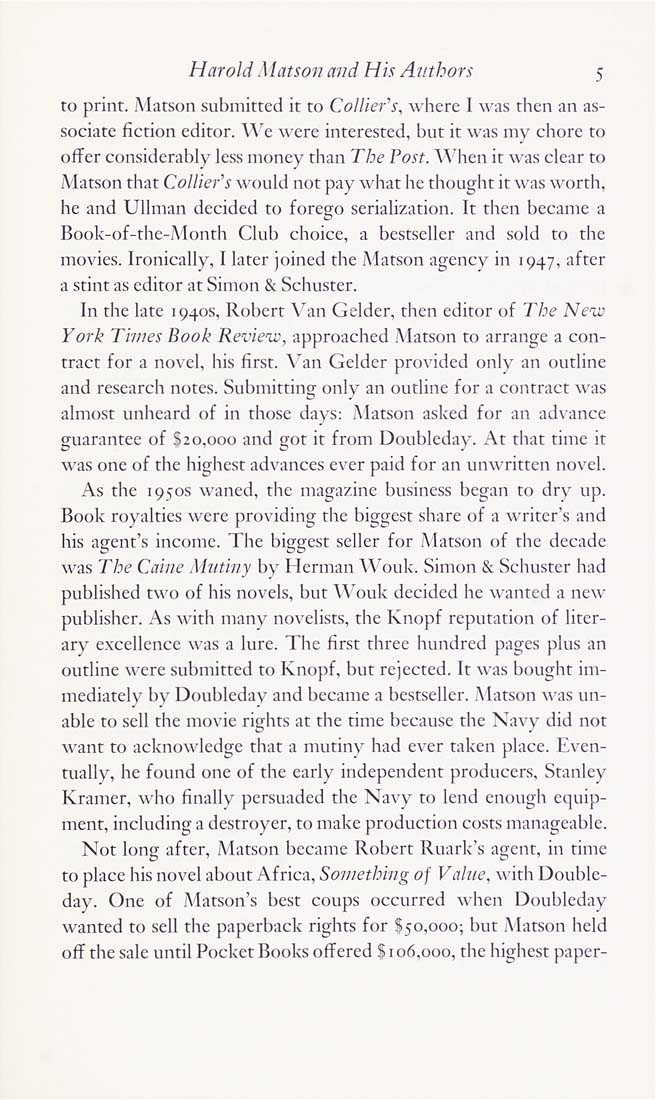Columbia Library columns (v.32(1982Nov-1983May))
(New York : Friends of the Columbia Libraries. )
|
||
|
|
|
|
| v.32,no.2(1983:Feb): Page 5 |

Harold ALnson and His Authors 5 to print. Matson submitted it to Collier's, where I was then an as¬ sociate fiction editor. We were interested, but it was my chore to offer considerably less money than The Post. When it was clear to Matson that Collier's would not pay what he thought it was worth, he and Ullman decided to forego serialization. It then became a Book-of-the-Month Club choice, a bestseller and sold to the movies. Ironically, I later joined the Matson agency in 1947, after a stint as editor at Simon & Schuster. In the late 1940s, Robert Van Gcldcr, then editor of The New York Times Book Review, approached .Matson to arrange a con¬ tract for a novel, his first. Van Geldcr provided only an outline and research notes. Submitting only an outline for a contract was almost unheard of in those days: Matson asked for an adxance guarantee of $20,000 and got it from Doubleday. At that time it was one of the highest advances ever paid for an unwTittcn novel. As the 1950s waned, the magazine business began to dry up. Book royalties were providing the biggest share of a writer's and his agent's income. The biggest seller for Matson of the decade was The Caine Mutiny by Herman Wouk. Simon & Schuster had published two of his novels, but Wouk decided he wanted a new publisher. As with many novelists, the Knopf reputation of liter¬ ary excellence was a lure. The first three hundred pages plus an outline were submitted to Knopf, but rejected. It was bought im¬ mediately by Doubleday and became a bestseller. Matson was un¬ able to sell the movie rights at the time because the Na\'y did not want to acknowledge that a mutiny had ever taken place. h"\'en- tually, he found one of the early independent producers, Stanley Kramer, who finally persuaded the Navy to lend enough equip¬ ment, including a destroyer, to make production costs manageable. Not long after, Matson became Robert Ruark's agent, in time to place his novel about Africa, Something of Value, with Double- day. One of ]\'latson's best coups occurred when Doubleday wanted to sell the paperback rights for $50,000; but Matson held off the sale until Pocket Books offered $106,000, the highest paper- |
| v.32,no.2(1983:Feb): Page 5 |







